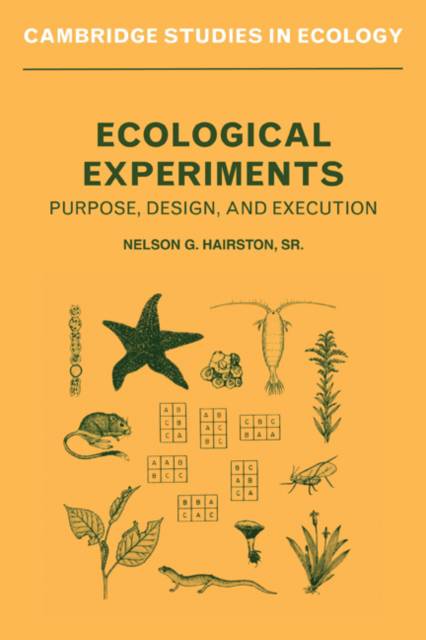
- Afhalen na 1 uur in een winkel met voorraad
- Gratis thuislevering in België vanaf € 30
- Ruim aanbod met 7 miljoen producten
- Afhalen na 1 uur in een winkel met voorraad
- Gratis thuislevering in België vanaf € 30
- Ruim aanbod met 7 miljoen producten
Zoeken
Omschrijving
Ecological Experiments stresses the importance of manipulative field experimentation in ecology as being superior to the observational method. The book begins with a series of ecological questions that can be answered by experiments, such as: what is the importance of competition among scientists? The minimal requirements of experimental design that should be met for satisfactory field experiments are then introduced, and examples of good and poor experiments from the literature are examined in this light along with a consideration of the trade-offs that may be forced on the experiment by the conditions faced in the field. Included are descriptions of experiments in five different kinds of environments: forests, successional habitats, deserts and semideserts, fresh water (divided into lakes, ponds, and streams), and marine environments (divided according to the kind of substrate). Each experiment is discussed from the standpoint of the ecological question being answered and the quality of ecological design. For most of the environments, the experiments are arranged according to the topic level. The final chapter contains discussions of the results in the different environments, and the conclusions that the experiments in each environment permit. It is shown that interpretations of environmental phenomena must be different for each kind of environment, and that a general theory of ecology is unlikely to be obtainable.
Specificaties
Betrokkenen
- Auteur(s):
- Uitgeverij:
Inhoud
- Aantal bladzijden:
- 390
- Taal:
- Engels
- Reeks:
Eigenschappen
- Productcode (EAN):
- 9780521346924
- Verschijningsdatum:
- 24/11/1989
- Uitvoering:
- Paperback
- Formaat:
- Trade paperback (VS)
- Afmetingen:
- 153 mm x 228 mm
- Gewicht:
- 571 g

Alleen bij Standaard Boekhandel
+ 288 punten op je klantenkaart van Standaard Boekhandel
Beoordelingen
We publiceren alleen reviews die voldoen aan de voorwaarden voor reviews. Bekijk onze voorwaarden voor reviews.











